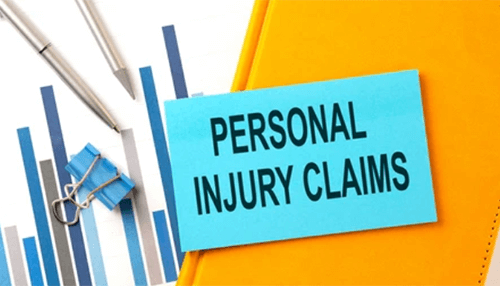The outcome of personal injury claims depends greatly on both the victim and the personal injury claims lawyer, who must work with the perfect understanding of getting things right in the first instance.
The victims should be aware of their role in helping the lawyer build a strong case and play their role to perfection to provide enough ammunition to the lawyer to fire the salvos at the right time to win the fairest compensation. Filing personal injury claims for compensation requires the expertise of personal injury claims lawyers who can provide the proper context to the case that strengthens the claim.
Hence, soon after you recover from the initial trauma of the accident and the dust settles down, contact the Lem Garcia Law office at West Covina and get a free consultation. The norm is to allow accident victims to avail themselves of free initial consultation with the personal injury claims laws.
The personal injury lawyer can help to maximize the compensation by including all kinds of expenses incurred and losses undergone due to the injuries. However, this does not mean inflating the numbers but ensuring that you get the compensation you rightly deserve.
The lawyer makes the process smooth for you and becomes your partner in waging the legal battle and driving it toward a meaningful conclusion.
Careful selection of the lawyer is the key to your success in winning the proper compensation. Only the lawyer can correctly explain your rights to set the right expectations about the maximum compensation you could get.
The lawyer analyzes all facts and information using legal references that eliminate emotions and puts the claim on the firm ground of legal interpretation with the least chances of anyone refuting or diluting the claim.
Document Everything
Documenting every fact that contributes to establishing the compensation claim is critically important. Both the victims and lawyers must work closely to document everything relevant for the case, failing which all efforts to recover compensation might go in vain.
Taking notes about the events that led to the accident and its aftermath should help make an exhaustive list of items to focus upon and start documenting it most effectively.
Different situations call for different types of documentation, and your attorney can guide you to collect the right kinds of documents that speak for it. Never ignore even the smallest ideas that can have a big impact on the claim amount and help you maximize the compensation.
Your physician should help you with proper documentation of the medical treatment by highlighting the injuries together with the process of recovery, which constitutes the larger part of the claim.
In addition, there are so many different elements of losses, direct and indirect, that you can add to the claim list to ensure that it takes care of all financial losses that you have undergone due to the accident.
Gather Extensive Evidence
The success of any personal injury claims compensation depends on furnishing solid evidence that leaves no room for the defendant to deny the charges of negligence that caused the accident.
Blaming the defendant for causing the accident is not enough unless you can establish the fault or negligence supported by proper evidence.
Evidence is also necessary to bolster the claim by amply demonstrating the righteousness of the claimant to include the elements that constitute the claim.
Documentation is an integral part of building and preserving evidence as it helps to prove the point comprehensively. It begins right from the time you get back on your feet by overcoming the initial shock of the accident.
To prove that you have a case, start taking photos of the accident scene, including the vehicles involved, the surroundings, the injured persons, and their injuries, including your injuries. Talk to people around to gather witnesses and make them agree to depose before the court if necessary.
Collect their contact details and record their version of the accident if they refuse to appear for testimony later. You can use audio, video, or text documents to record the evidence.
Establish Disability
Suppose one of the purposes of documentation is to gather evidence to build a strong case. In that case, the other purpose is to establish the extent of harm caused by the injuries, including any disability resulting from it.
Your medical records bear crucial evidence about these, and you must work closely with your physician to ensure proper documentation. The injuries could impose various physical restrictions on your movements and impair your ability to lead a regular life.
If the injuries are too severe, they can lead to several types of temporary or permanent disability. The physician should carefully document all kinds of impairments and their nature along with the period of suffering.
Even if you have received disability or vacation pay during this period, you are still entitled to claim compensation and seek reimbursement through settlement.
During the period of total disability, you can claim 100% of lost wages or expected net earnings, and for partial disability, the amount of reimbursement is 50%.
Job Description
It is not enough to include the lost earnings only to work out the compensation amount due to your inability to work while undergoing medical treatment and recovery. You should also consider how the injuries could limit your ability to work like any average person.
To figure out the mental and physical deficiencies that you might face in the future that prevent you from carrying out your work in the prescribed manner, you must document the job description that mentions the physical and mental requirements to carry out the job satisfactorily.
It should include the criteria for lifting or moving heavy loads, the time spent standing or sitting for doing the job, and any repetitive movements, including twisting movements involved in the job.
You should also highlight the mental agility required for the job because some prescription drugs, including pain medication, may impact your ability to concentrate and make critical decisions at the workplace.
Potential
The better you document your loss of potential to do regular work that prevents you from discharging your duties at the workplace, the higher will be the compensation that you can claim.
As part of your documentation, include the calendar highlighting missed meetings, overtime hours lost, vacation pay, and sick pay that you were eligible for while away from work due to injuries.
Include minutes of meetings, previous work schedules, pay stubs, and letters from clients to document your claim. Also include the testimonies of physicians, therapists, supervisors, and others who supported you until recovering from the injuries.
Ask The Attorney About The Types Of Damages
The personal injury claims law provide compensation for a variety of damages, including suffering and pain as well as loss of enjoyment, and you must talk to your attorney to explore ways of maximizing your compensation claim. Broadly speaking, the damages for personal injury fall under two categories – special damages and general damages.
Special Damages:
Under this category, the victim can claim all medical expenses incurred currently and future expenses if the treatment continues for a prolonged period even after recovering from the injuries.
It includes costs related to hospital stays, medical expenses, including surgeries, and the cost of medicines. It also consists of all costs associated with doctor’s appointments, the cost of in-home and nursing home care, medical transportation, and an increase in living expenses.
Loss of wages in the present and future as the injuries might limit your ability to work to your full potential in the future.
The cost of irreplaceable property like some family heirloom destroyed or damaged in the accident that caused the injuries can be a part of the compensation claimed.
If you were planning an extensive international trip that got canceled due to the accident’s injuries, you could seek financial compensation for the cancellation.
General Damages:
Also known as general compensatory damages or non-economic damages, it includes the financial cost related to permanent impairments and disabilities, disfigurement, and scarring. It includes pain and suffering, trauma, mental anguish, emotional distress, loss of enjoyment of life, PTSD, anxiety, depression, other psychological distress, and stress and inconvenience.
The compensation you receive for non-economic damages depends on various factors. The type of injury and its severity impact the suffering and pain that you go through. More severe are the injuries, higher are the non-economic damages that you can claim. Some states like Florida consider punitive damages too in very few personal injury claims.
Although you need the compensation at the soonest, never rush to file the claim because the compensation elements keep accruing as time progresses and stretches for some period even after the treatment is complete and you recover from the injuries.
Unless you are sure that you have reached a stage when no further expenses or losses are likely to happen, it is better to delay the filing of the claim so that you can include more items to maximize the claim. However, to keep options open about filing a lawsuit, time your claim right so that you can file the lawsuit within two years of the accident.



